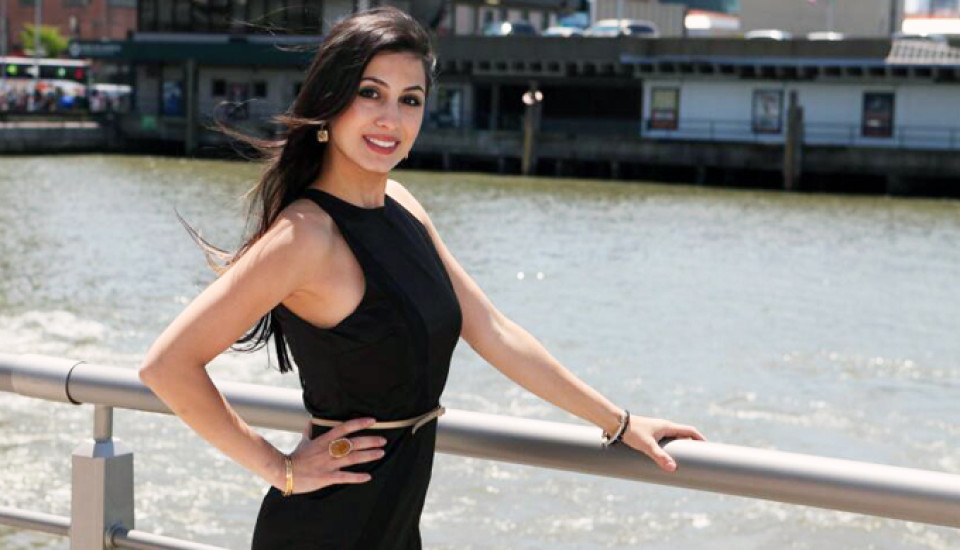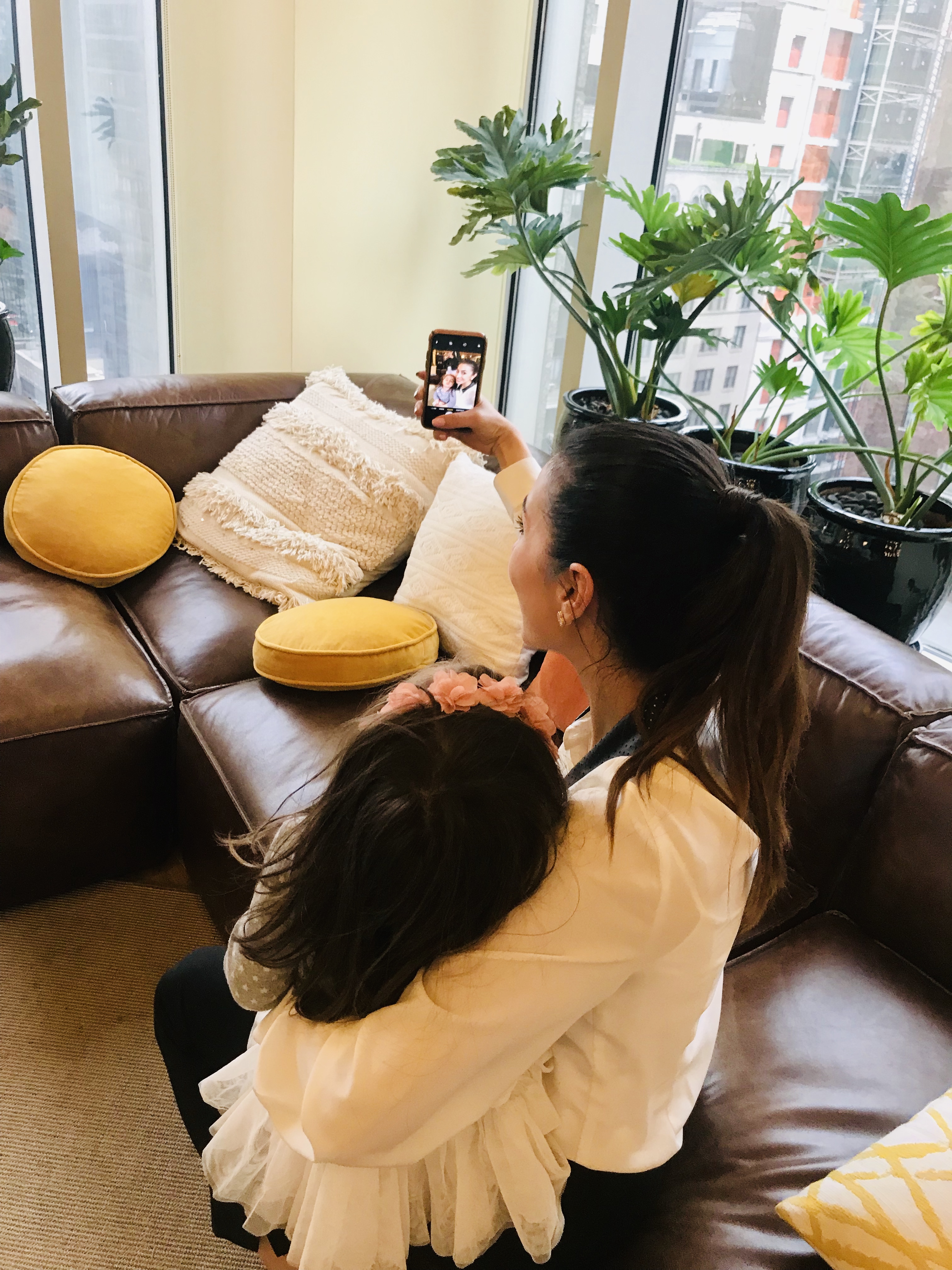By Maria A. Pardalis
In this day and age, it seems as though everyone is perpetually addicted to their screens, including young children, who from the womb appear to be smartphone experts and far more concerned about the amount of likes they receive in cyberspace than how much they are liked in real life. Even someone as young as my 2 year old has been scrolling since 12 months. Almost everyone who witnessed my daughter navigating through my apps like a boss, expressed how adorable and intelligent she was. Collectively we would laugh and allow her to continue her compulsive scrolling, then subconsciously join the madness as we looked down at our own smartphones and consumed content instead of interacting with one another.
With a career in the media industry, I not only manage my social media accounts but also several business accounts. Therefore, I always viewed that most of my screen time consumption was for work purposes, which made it acceptable. At home, I am known as the “Screen Nazi” and have strict screen time rules firmly in place for my three children, including the cute scrolling 2-year-old. However, I failed to implement similar limits to my own usage since I was an adult, and besides, most of the time I was “working”.
Quite frankly, I never realized the amount of time I spent engaging on Facebook, Instagram, Twitter, and Linkedin until Apple introduced its Screen Time feature. 8h 40m per day it read. I was floored. I barely sleep for more than 6 hours, how was it that I had the time to be on my smartphone for nearly 9 hours per day? My most used categories were: Instagram, Facebook, YouTube, and Twitter. Apple’s Screen Time also tracks how often you pick up your phone. My number was 184 per day. Yikes!
This new weekly Screen Time update made it official, I was a social media junkie in need of constant stimulation and now apparently, a digital intervention.
I became one of those people who mind-numbingly scrolled instead of just sitting with my thoughts or truly being present. As a Type A individual, I could not simply scale back on my social media usage, that to me was going the wimpy route. If I was going to do this, I had to do it right and go cold turkey: disconnect completely, do not engage or even look at any type of social media for 30 days.
After preparing and sharing my “Going Offline for 30 Days” post, I immediately logged off from all accounts in order to resist reading the comments my post would surely garner. I heaved a euphoric sigh of relief and weirdly felt proud of myself. It took a couple of days for people to notice that I was offline and still my phone did not ring. Instead, I received an endless amount of text messages from friends asking me if everything was okay and if something occurred that was causing me to do this unimaginable thing. This is how you know most of the world is suffering from social media addictions. Negative connotations were immediately associated with my disconnecting. Not all comments were negative, many were hysterically funny. Some friends joked that my husband’s accounts would suddenly begin to like macaron related posts and share quotes about empowering women. The temptation to peek via my husband’s account did not arise. Instead, I oddly felt liberated and free not to have to “like” people’s photos every day in order to make them feel good. To my surprise, I did not miss having my own photos liked. Being liked on social media did not contribute anything to the core of my happiness.
I discovered that my very own social media posts wasted hours and hours of my day, since I naturally had to go back and check to see who liked my photos. If someone commented, I then further engaged with that profile and in return sent them feel good comments too. While I truly appreciate the essence of social media and love how these platforms instantly unite friends and family, I realized I enjoy these interactions in moderation. Just like I enjoy my desserts. I am an extreme sugar lover, however, if I indulged in sweets all day I would get sick and then in turn start despising all desserts. This is what was happening with my social media usage.
As the days went on, I started to feel as if God granted me extra hours in the day. I was also sleeping better since I didn’t have Instagram to keep me up till midnight and did not have to see what I missed out on during the day. My work productivity was revolutionized due to not having to take frequent breaks to “see what was happening” online. Not once did I experience FOMO. I filled those voids with finishing my work faster, which allowed for time to attune to other social signals in my life: my friends, my children, and my husband.
My daily rituals were slowly changing and I was loving this new me. In place of beginning my day with Twitter, I started praying and sitting in silence before the morning rush began in my house. My brain was creating new neural pathways and my newly adopted rituals were now my new normal. When friends asked if I saw what someone posted on IG, I happily replied with a peaceful smile and a no. My work life did not suffer either, thanks to my amazing media team whom I carefully prepared to take the reins prior to my disconnecting.
Most studies state that it takes over two months of daily repetitions before a behavior becomes a habit. While this is true for most addictions, going offline for 30 days was enough to help me become mindful of my thinking and to break out of a detrimental routine that was not only wasting my time, but also hindering me from accomplishing things that truly matter to me in life. In fact, I am now contemplating disconnecting on the weekends or maybe for another 30 days.
5 Positive Social Media Detox Perks I Experienced:
- I immediately felt liberated.
- I read BOOKS, yes more than one!
- I discovered podcasts that enlightened and inspired me. They became part of my daily regimen and took the place of mindless scrolling.
- Projects that lay dormant on my never-ending “to-do” list for years were getting checked off. And boy did that feel good!
- I became PRESENT, reconnected with nature, family, friends, and immersed myself with a plethora of outdoor activities as well as indulged in much-needed self-care. And this may sound strange, but I found myself instantly happier and more relaxed.
Who would have thought something so simple as a digital detox could yield so many positive results?
HOW TO DETOX FROM SOCIAL MEDIA
Take a couple days to prepare for an entire month without social media:
- Start on the 1st of the month and create a simple post sharing that you will be offline for the next 30 days. If anyone wishes to reach you they should email or “gasp” call to speak to you.
- As soon as your post goes viral, log off from all of your social media apps in order to resist the temptation to check and also to stop all the message and activity notifications from coming through. Those pings immediately grab our attention and hold it hostage for unnecessarily long periods of time.
- Write down 5 things you wish you had time for and start doing them because I assure you that you will suddenly find yourself with hours of free time.
- Every time you feel the urge to click on Instagram or Facebook, click on your podcast app and listen to something that will truly make you feel good or enlighten you in ways you never fathomed.


